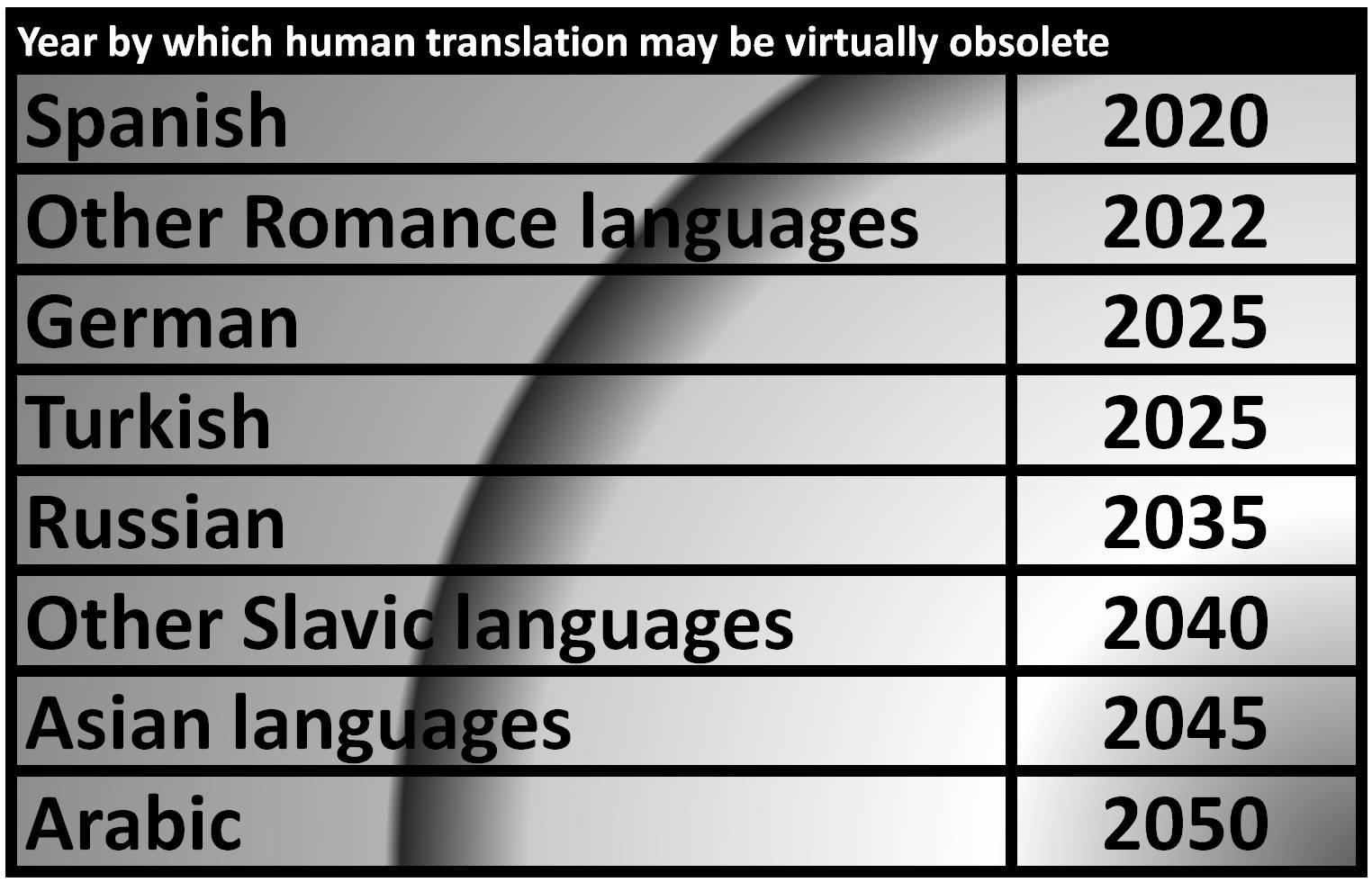I recently listened to a TEDTalk given by Louis von Ahn, co-founder and CEO of Duolingo. During this talk, which he gave in 2011, he addresses the topic of machine translation a bit. Specificially, he says this:
Now, some of you may say, why can't we use computers to translate? Machine translation is starting to translate some sentences here and there. Why can't we use it to translate the web? The problem with that is it's not yet good enough and it probably won't be for the next 15 to 20 years. It makes a lot of mistakes. Even when it doesn't, since it makes so many mistakes, you don't know whether to trust it or not.
I've been thinking about his prediction ever since. Specifically, I've been wondering if his 15-20 year estimate is conservative, generous, or spot-on. For a variety of reasons, I decided to come up with my own predictions based on the prediction Mr. von Ahn has made. Those predictions are below:

You'll notice that the list is not all that inclusive, but my purpose is not to get a language by language prediction and I felt it was best to keep it to languages I was most familiar with (the one exception being the Asian languages).
Setting aside all reports of an asteroid hitting Earth in 2025 or reports that we will reach "singularity" by 2045, I am curious about the opinions of others who are more learned with the topic of linguistics, machine learning, and/or artificial intelligence with regard to the predictions I've made. In fact, I thought about posting this on the Artificial Intelligence StackExchange, but I sensed it would be seen by more people who have discussed this question by posting it here in the Linguistics StackExchange.
I'd also be interested in knowing how you come up with your predictions. Mine, as I said, were based off of Mr. von Ahn's predictions, but beyond that, I factored in the difficulty of the various languages based off of previously established models (such as the FSI's categories of language difficulty), my own personal experience with the language, and how well I've noticed tools such as Google Translate perform.
It would seem to me that this process of going from human translation to machine translation will be a gradual process and quite different from the transition that took place between use of the abacus and the hand-held calculator. However, the path technology has taken and the speed with which it has spread seems to indicate that it is inevitable that one day machine translation will eclipse human translation. Sadly, however, I've never heard anyone lament, But I was really good with the abacus! What am I going to do now that the calculator is here!! I say sadly, because learning a language may be the one true talent some of us have and it takes a lot of time and energy to learn a language. Despite that (or perhaps because of it) I wonder if it makes sense to continue such a pursuit. The quality of some machine translations I've seen is so good that I wonder if continuing to learn a language is akin to continuing to master your skills with the abacus when the calculator is about to hit the market. In other words, is it now a waste of time to bother learning a foreign language because a machine will soon be able to do it so much faster and so much better?
Thank you in advance for taking the time to consider and answer my question.